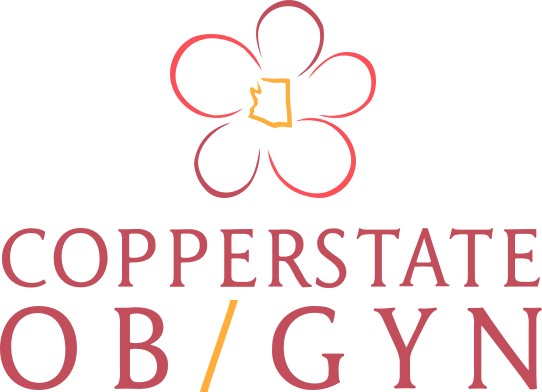If you’re trying to get pregnant, it can feel like everyone around you conceived on the first try, with no effort whatsoever. While it’s true that some couples seem to conceive just by looking at each other, the reality is that it often takes anywhere from 6 months to a year for an average, healthy couple.
However, that doesn’t mean that you should just sit back and let nature take its course. There are lots of tips and tricks you can do to create an ideal environment for conception each month. While these certainly don’t guarantee pregnancy, they can help improve your chances. With that in mind, here’s our step-by-step guide on how to get pregnant faster.
How to Get Pregnant Fast
See Your Gynecologist
Once you and your partner have decided to try for a baby, the first thing you should do is visit your gynecologist. This is a great first step because together you can review your health, discuss what you should consider while conceiving, and she will likely prescribe or recommend that you start taking a prenatal vitamin.
Prenatal vitamins are a great source of folic acid and iron, which should be built up in your system before you even become pregnant. Folic acid and iron reduce the risk of fetal abnormalities in the brain and spinal cord and support the baby’s overall development.
Track Your Menstrual Cycle
These days there are so many fantastic fertility and menstrual smartphone apps that track every aspect of your cycle and help you really get to know your body. The truth is, every woman’s cycle is different. Your cycle can be as short as 22 days or as long as 40 days. You might ovulate earlier or later in your cycle than you realize.
Becoming aware of your cycle is an important part of trying to conceive, as you have a limited “fertile window” each month. Here’s a list of some apps we recommend to get you started.
Use Ovulation Test Strips
While cycle tracking apps are a great tool to understand your body and when you might be the most fertile each month, they certainly aren’t foolproof. For example, the app might see that you have a 28-day cycle and therefore assume you are ovulating on day 14. This is because if you are having a regular 28-day cycle, physiologically you are most likely ovulating on day 14, plus or minus a couple of days.
However, every woman’s body is different. If you find that the length of your cycles fluctuate, or that your regular cycle tends to be longer or shorter than 28 days, one tool you can use to help you determine your most fertile time are ovulation test strips. You can get them almost anywhere, from your local Walgreens to Amazon, and a box of 30 can help you narrow down your true fertile window each month.
Ovulation test strips work by identifying when your body is having an LH surge. This is the surge that occurs about 12-24 hours prior to ovulation. When your test strip turns positive, it’s an ideal time to have unprotected sex.
It’s important to note that when you have sex a day or two before ovulation, you’re much more likely to achieve pregnancy, as sperm can live for up to 5 days and it takes a while for them to make the journey. They need to be all the way in the fallopian tube when ovulation occurs. Only having sex on the day of ovulation doesn’t give them much time for swimming. Use the strips as a tool for determining when your fertile window typically occurs each month and have sex a few days prior to when you think you’re going to ovulate.
(If you notice that you aren’t having any LH surges, and it’s been 3 months, it is advisable to see your gynecologist again to make sure that you are actually ovulating.)
Learn the Signs that Your Body is Ready to Conceive
While ovulation test strips are considered an easier way of determining when you’re about to ovulate, there are other signs your body may give you that can help indicate you are entering your fertile window.
For example, some women chart their basal body temperature and their cervical mucus each month. Your basal body temperature, which is taken the minute you wake up – even before you sit up – will start to increase right before ovulation.
Your cervical mucus will also give you signs that your body might be at its most fertile. Throughout the month, it might change from dry and sticky, to creamy, to egg-white-like, and then back to dry and sticky. When you notice an egg-white consistency, you may be about to ovulate!
Have Sex Regularly
Many couples believe they only need to have sex the day they ovulate in order to conceive. However, this is not the case. While you can technically become pregnant at any time during the month, it’s most important to have sex every day, or every other day, during your fertile window. This gives you the best chance to conceive.
While sperm can live in the body for several days, an egg only has about 12 viable hours. So, it’s important that the sperm are already present by the time you ovulate.
Consume Less Caffeine and Alcohol
This one is a bummer if you’re a coffee addict, but it’s important. Excessive caffeine and alcohol consumption can limit or worsen your chances of conceiving each month. Don’t worry, one or two 8 ounce cups of coffee or tea a day won’t do anything. But if you find yourself reaching for a third or fourth cup, try to hold back.
Fertility and Age
While healthy, average couples can take up to a year to conceive, it’s important to know how things may change based on your age. If you are under the age of 35 and have no known conditions, you can try for a full year before reaching out to your doctor for help. However, if you are over the age of 35 and you’re not pregnant in 6 months, you should see your doctor.
While these tips are not guaranteed for a positive pregnancy test, they may help you improve your odds each month.
Pregnancy can sometimes be a hit-or-miss journey. However, by following these tips, you’re giving your body the best chance it can have to conceive each month. And remember to have fun. Putting too much stress and pressure on yourself won’t do you any good – this big step you’re taking with your partner can be exciting. Try to enjoy it!
Have you *finally* gotten your BFP? Are you looking for an OB/GYN? Let us join you on your pregnancy journey. Book an appointment today!
Resources:

